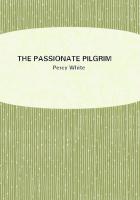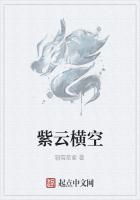And how can people say that Dickens could not draw a gentleman? The boy who shouted, "Shame, J. Steerforth!" was a gentleman, if one may pretend to have an opinion about a theme so difficult. The Dodger and Charley Bates are delightful boys--especially Bates. Pip, in the good old days, when he was the prowling boy, and fought Herbert Pocket, was not less attractive, and Herbert himself, with his theory and practice of the art of self-defence--could Nelson have been more brave, or Shelley (as in Mr. Matthew Arnold's opinion)more "ineffectual"? Even the boys at Dotheboys Hall are each of them quite distinct. Dickens's boys are almost as dear to me as Thackeray's--as little Rawdon himself. There is one exception. Icannot interest myself in Little Dombey. Little David Copperfield is a jewel of a boy with a turn for books. Doubtless he is created out of Dickens's memories of himself as a child. That is true pathos again, and not overwrought, when David is sent to Creakle's, and his poor troubled mother dare hardly say farewell to him.
And this brings us back to that debatable thing--the pathos of Dickens--from which one has been withdrawn by the attractions of his boys. Little Dombey is a prize example of his pathos. Little Nell is another. Jeffrey, of the Edinburgh Review, who criticised "Marmion" and the "Lady of the Lake" so vindictively, shed tears over Little Nell. It is a matter of taste, or, as Science might say, of the lachrymal glands as developed in each individual. But the lachrymal glands of this ******* are not developed in that direction. Little Dombey and Little Nell leave me with a pair of dry eyes. I do not "melt visibly" over Little Dombey, like the weak-eyed young man who took out his books and trunk to the coach.
The poor little chap was feeble and feverish, and had dreams of trying to stop a river with his childish hands, or to choke it with sand. It may be very good pathology, but I cannot see that it is at all right pathos. One does not like copy to be made out of the sufferings of children or of animals. One's heart hardens: the object is too manifest, the trick is too easy. Conceive a child of Dombey's age remarking, with his latest breath, "Tell them that the picture on the stairs at school is not Divine enough!" That is not the delirium of infancy, that is art-criticism: it is the Athenaeum on Mr. Holman Hunt. It is not true to nature; it is not good in art: it is the kind of thing that appears in Sunday-school books about the virtuous little boy who died. There is more true pathos in many a page of "Huckleberry Finn." Yet this is what Jeffrey gushed over. "There has been nothing like the actual dying of that sweet Paul." So much can age enfeeble the intellect, that he who had known Scott, and yet nibbled at his fame, descended to admiring the feeblest of false sentiment. As for Little Nell, who also has caused floods of tears to be shed, her case is sufficiently illustrated by the picture in the first edition ("Master Humphrey's Clock,", 1840, p. 210):
"'When I die Put near me something that has loved the light, And had the sky above it always.' Those Were her words.""Dear, gentle, patient, noble Nell was dead!"The pathos is about as good as the prose, and THAT is blank verse.
Are the words in the former quotation in the least like anything that a little girl would say? A German sentimentalist might have said them; Obermann might have murmured them in his weaker moments.
Let us try a piece of domestic pathos by another hand. It is the dawn of Waterloo.
"Heart-stained and shame-stricken, he stood at the bed's foot, and looked at the sleeping girl. How dared he--who was he--to pray for one so spotless! God bless her! God bless her! He came to the bedside, and looked at the hand, the little soft hand, lying asleep, and he bent over the pillow noiselessly towards the gentle pale face. Two fair arms closed tenderly round his neck as he stooped down. 'I am awake, George,' the poor child said, with a sob."I know I am ****** enemies of a large proportion of the readers of this page. "Odious, sneering beast!" is the quotation which they will apply, perhaps unconscious of its origin, to a critic who is humble but would fain be honest, to a critic who thinks that Dickens has his weak places, and that his pathos is one of these. It cannot be helped. Each of us has his author who is a favourite, a friend, an idol, whose immaculate perfection he maintains against all comers. For example, things are urged against Scott; I receive them in the attitude of the deaf adder of St. Augustine, who stops one ear with his tail and presses the other against the dust. The same with Moliere: M. Scherer utters complaints against Moliere! He would not convince me, even if I were convinced. So, with regard to Dickens, the true believer will not listen, he will not be persuaded. But if any one feels a little shaken, let him try it another way. There is a character in M. Alphonse Daudet's "Froment Jeune et Rissler Aine"--a character who, people say, is taken bodily from Dickens. This is Desiree Delobelle, the deformed girl, the daughter of un rate, a pretentious imbecile actor. She is poor, stunted, laborious, toiling at a small industry; she is in love, is rejected, she tries to drown herself, she dies. The sequence of ideas is in Dickens's vein; but read the tale, and I think you will see how little the thing is overdone, how ****** and unforced it is, compared with analogous persons and scenes in the work of the English master. The idiotic yell of "plagiarism" has been raised, of course, by critical cretins. M. Daudet, as I understand what he says in "Trente Ans de Paris," had not read Dickens at all, when he wrote "Froment Jeune"--certainly had not read "Our Mutual Friend."But there is something of Dickens's genius in M. Daudet's, and that something is kept much better in hand by the Frenchman, is more subordinated to the principles of taste and of truth.















